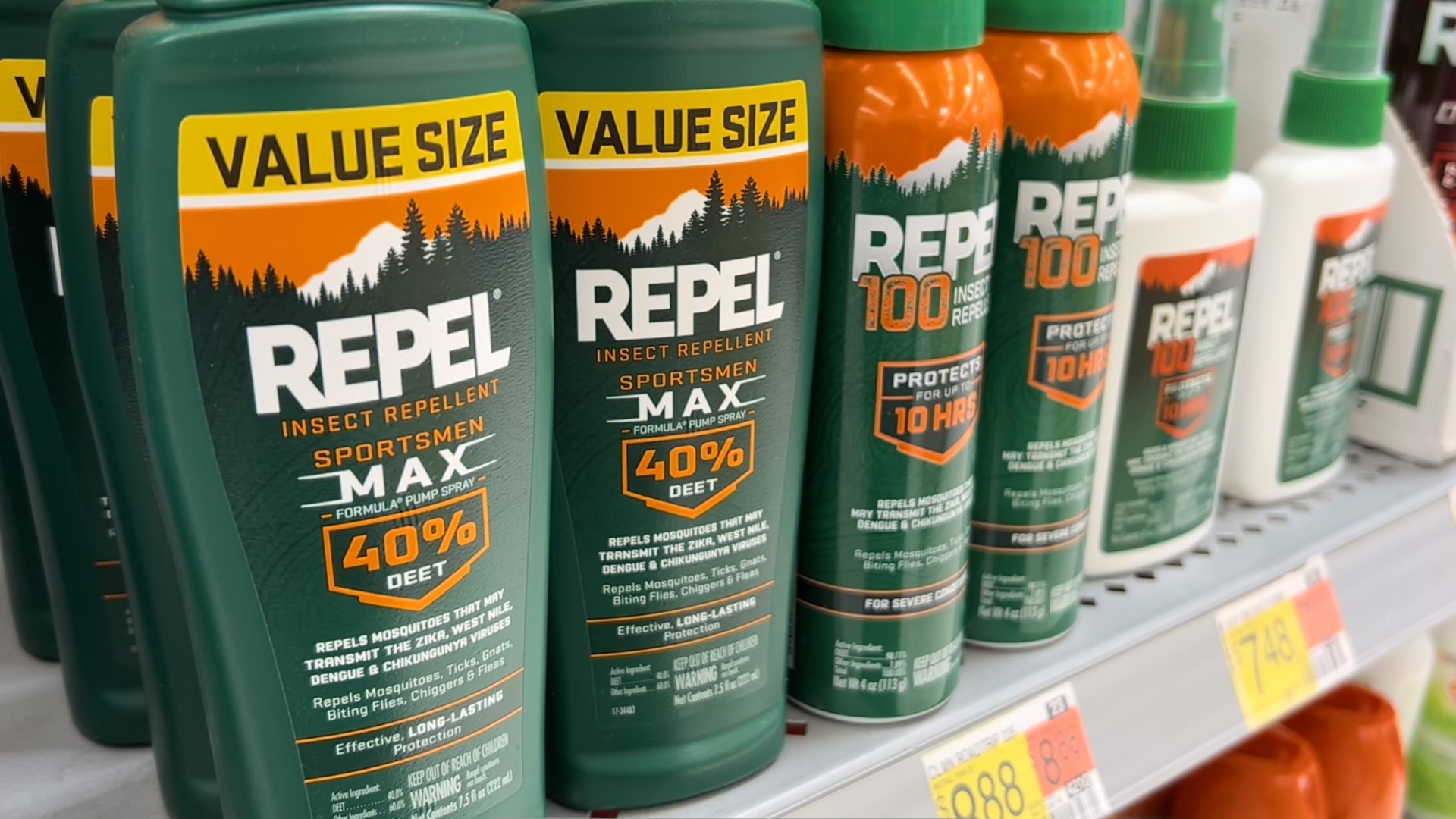HUMMELSTOWN, Pa. — They’re an unavoidable part of summer: pesky insects like mosquitoes and ticks looking for a tasty snack.
With mosquitoes potentially carrying diseases like the West Nile Virus, and some ticks carrying Lyme disease, their bites can leave behind more than just an itchy bump.
“It’s very important to protect your kids and even parents from insects,” said Dr. Cynthia Elsner, a pediatrician at UPMC Children's Community Pediatrics, Hummelstown.
Thankfully, there are a few simple things you can do to keep you and your family safe.
“Physical barriers are very important,” said Dr. Elsner.
That means wearing long sleeves, long pants and close-toed shoes. You can also tuck your pants into your socks for an added layer of protection.
Bug spray is also an effective tool in preventing bug bites.
“The American Academy of Pediatrics does recommend using any kind of insect repellent on kids 2 months and above and it should be containing DEET,” said Dr. Elsner.
DEET is the active ingredient in many insect repellents. It's what stops the bugs from biting us.
Dr. Elsner says while some people may be hesitant to use DEET, it’s safe if you use it properly.
The United State Environmental Protection Agency offers these tips on how to use DEET safely:
“All DEET product labels include the following directions to help reduce the chance of DEET irritating your skin or eyes:
- Read and follow all directions and precautions on this product label.
- Do not apply over cuts, wounds or irritated skin.
- Do not apply to hands or near eyes and mouth of young children.
- Do not allow young children to apply this product.
- Use just enough repellent to cover exposed skin and/or clothing.
- Do not use under clothing.
- Avoid over-application of this product.
- After returning indoors, wash treated skin with soap and water.
- Wash treated clothing before wearing it again.
- Use of this product may cause skin reactions in rare cases.
The following additional statements will appear on the labels of all aerosol and pump spray formulation labels:
- Do not spray in enclosed areas.
- To apply to face, spray on hands first and then rub on face. Do not spray directly onto face.”
While there may be some natural insect repellents on the market, Dr. Elsner recommends avoiding these products.
“They aren’t approved by the FDA and don’t do what they need to do,” adds Dr. Elsner.
She also says it’s not a bad idea to check your kids for ticks every 24 hours.

